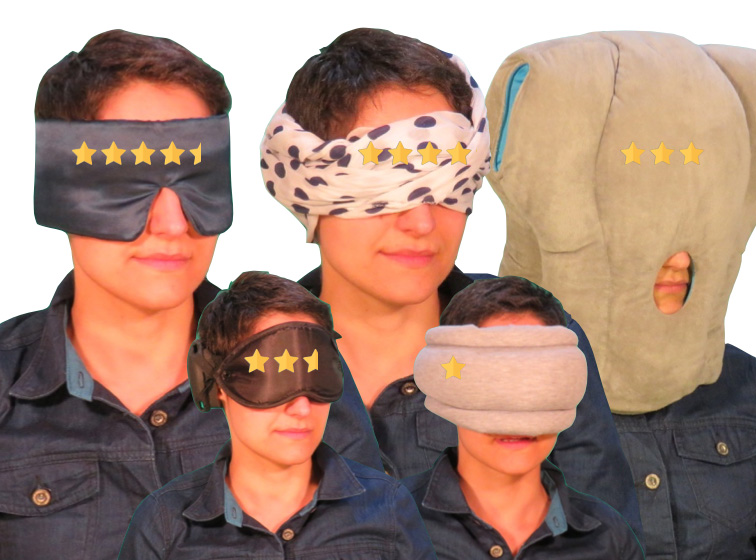
If there is one thing that can completely destroy the quality of your power nap, it’s light. So a good eye mask can be a game changer when it comes to power napping.
Below are five different light blocking devices I’ve tested and my thoughts on each one. I’ve listed the devices from least effective to most effective.
1. OstrichPillow Light
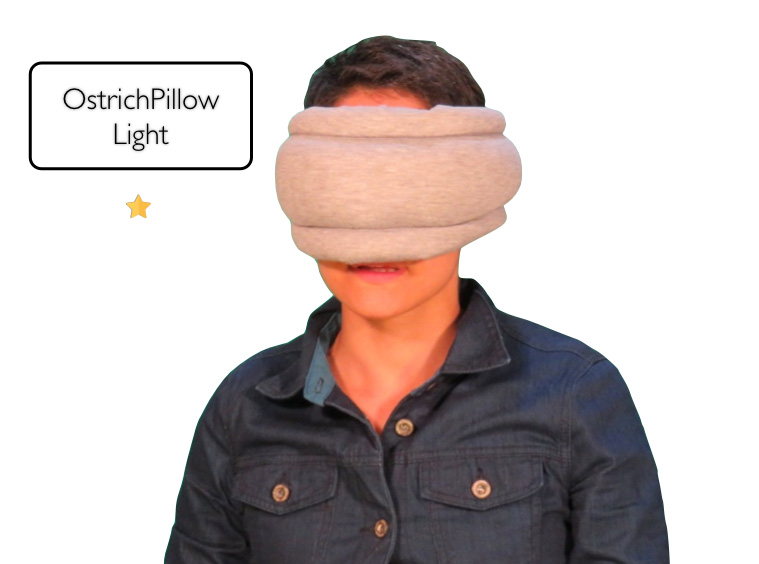
Pros
Cons
Star rating: 1 out of 5
2. The Hibermate
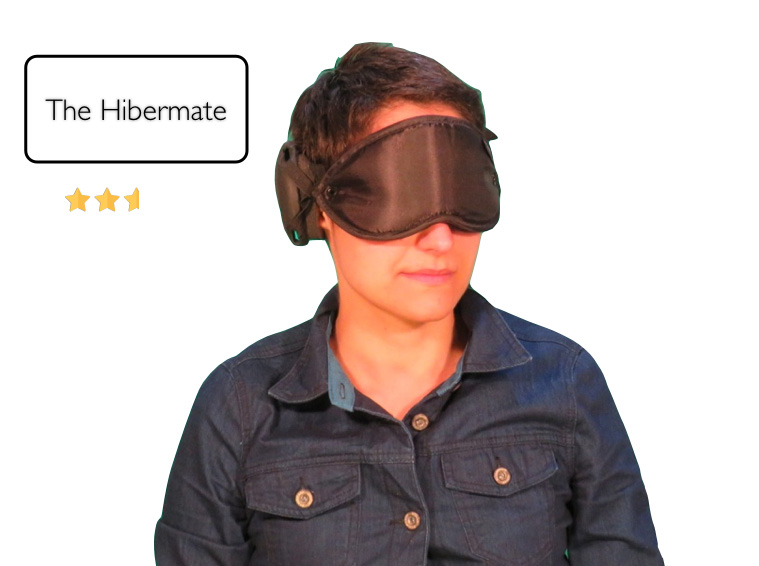
Pros
Cons
Star rating: 2.5 out of 5
3. OstrichPillow Original
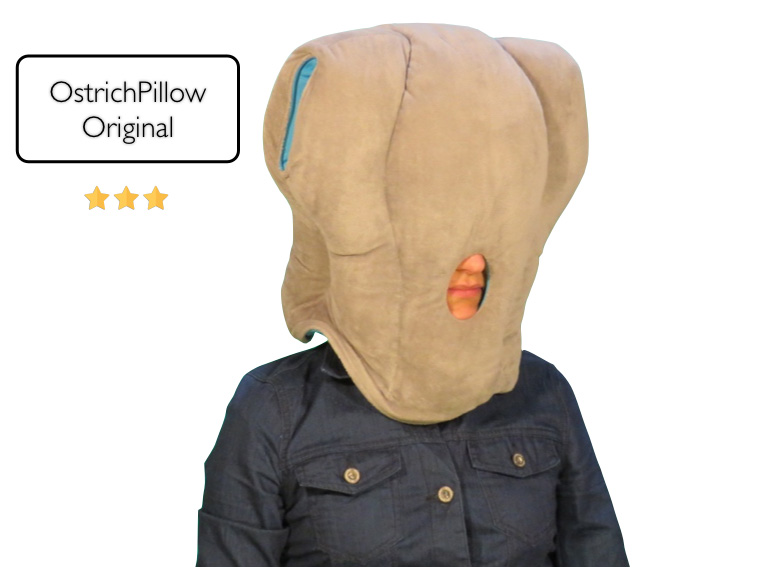
Pros
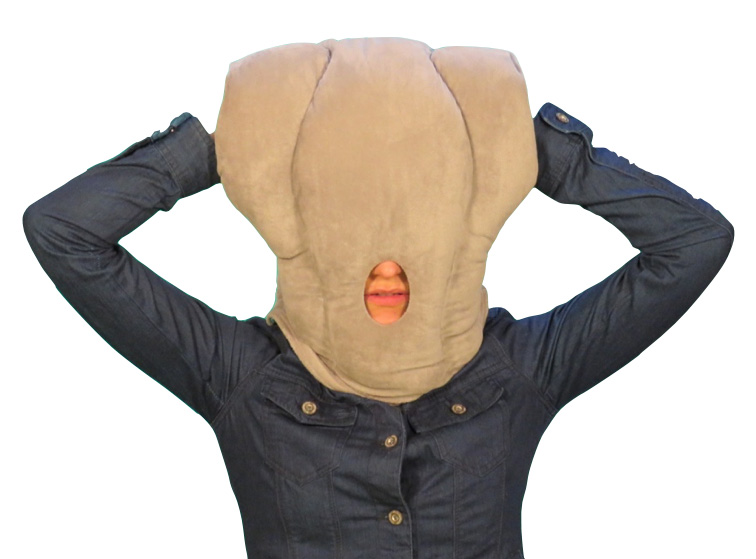
Cons
Star rating: 3 out of 5
4. A cotton scarf
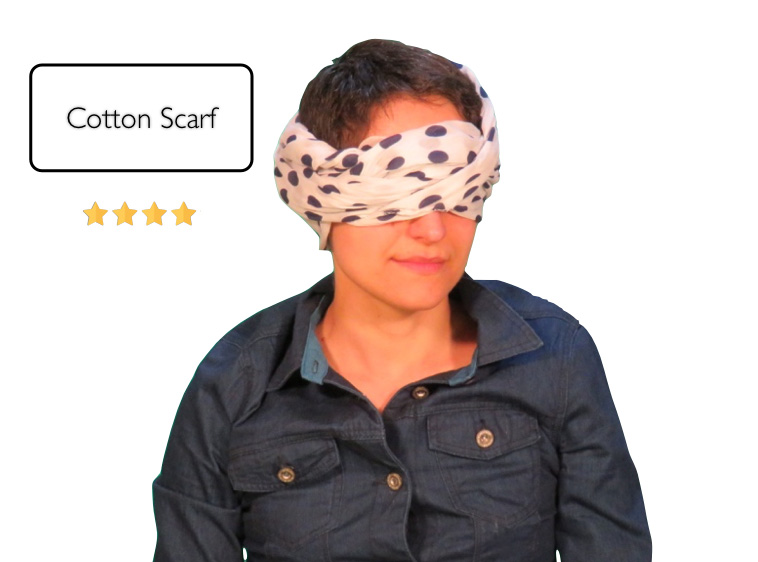
Pros
Cons
Star rating: 4 out of 5
5. The Sleep Master
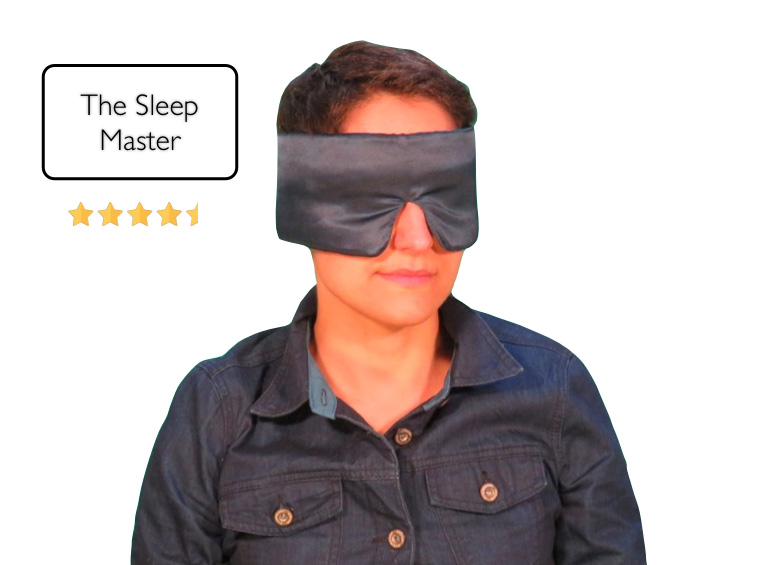
Pros
Cons
Star rating: 4.5 out of 5
To sum up
So there you have it! Five different eye masks to enhance (or destroy) your napping experience.
Some eye masks I recommend you avoid, whereas others like the Sleep Master are worth investing in if you’re seriously into napping. But at the end of the day, I didn’t find that there was much of a difference between a soft scarf and the Sleep Master.
My best advice: save your hard earned money and make do with a scarf!
Share This:
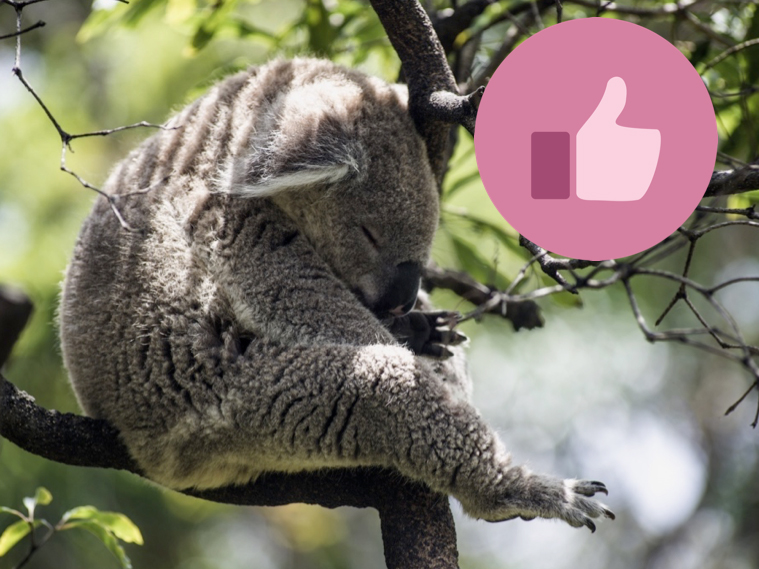
A good night’s sleep improves every area of your life. This includes your emotional wellbeing, memory, metabolism, ability to focus, stress response, and much more.
One theory is Revenge Bed Time Procrastination.
Although this concept originated in China, Revenge Bed Time Procrastination is a global phenomenon.
The idea of Revenge Bed Time Procrastination is simple . . .
When you feel like you don’t have much control over your day (due to work, study, and/or sports commitments), you sacrifice sleep to engage in fun activities to regain some sense of freedom.
Instead of sleeping, you stay up late watching your favourite shows, playing video games, and/or chatting with friends online.
But this comes at a cost. By seeking revenge on your work/school day and sacrificing sleep, your health suffers.
Your ability to study and learn is also negatively impacted. When you’re sleep deprived, the hippocampus (that’s the part of the brain associated with memory and learning) ceases to function properly. This makes it incredibly difficult to retain information when you study.
High school students need about 9-10 hours each night.
Adults need about 7-9 hours.
But it’s not just quantity of sleep that matters. It’s quality, too.
Getting up throughout the night to check your phone destroys your sleep quality.
The good news is there are a range of simple things you can do to get more and better sleep. Since you spend about a third of your life asleep, it makes sense to learn how you can optimise this area of your life.
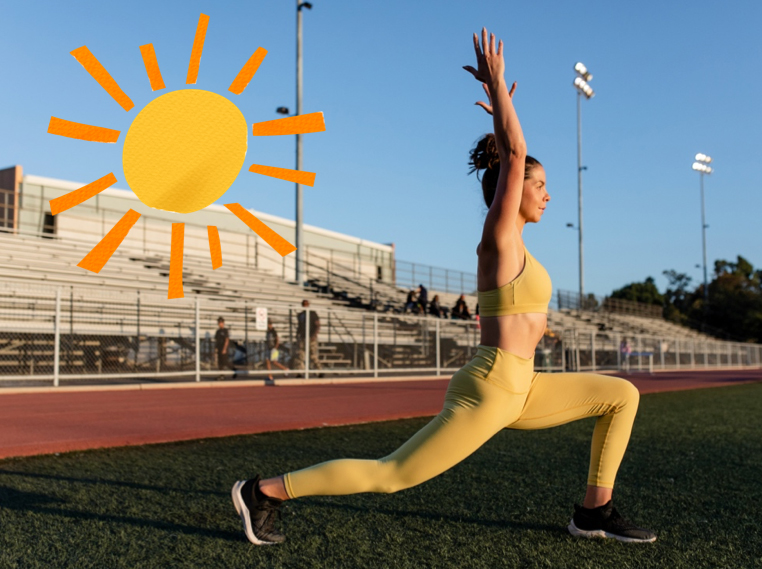
Getting some sunshine first thing in the morning when you wake up can help you sleep better at night. Even just 10 minutes of sunshine can work wonders. You could create a tiny habit of eating breakfast outside or going outside for a short walk, run and/or workout.
If you use your phone as an alarm, there’s a good chance you’ve developed the habit of sleeping next to your phone. When your phone is in sight and within arms reach, it’s tempting to keep checking your phone.
Co-founder of the Centre for Humane Technology Tristan Harris says sleeping with your phone next to you is like sleeping next to a giant doughnut. It’s really hard to resist.
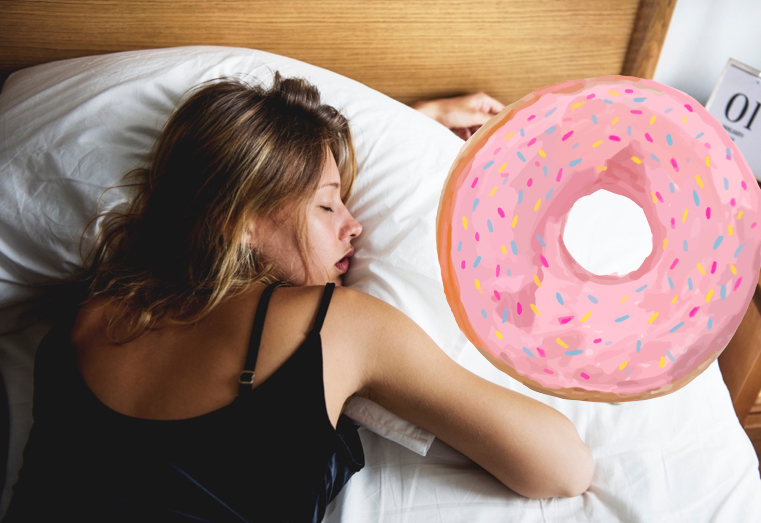
In addition, the light that is emitted from your phone messes with your ability to produce melatonin (a hormone that makes you feel sleepy).
This explains why so many people struggle to fall asleep. And it’s why many sleep scientists recommend charging your phone in another room at least 30 minutes before you go to bed. Out of sight, out of mind.
It’s not just the light from screens that keeps you awake at night. Scrolling through social media and playing video games are mentally stimulating tasks. These apps and games are designed to hook you in and hijack your attention.
The problem is this is the polar opposite to how you need to feel before you go to bed!
To get a good night’s sleep, you need to slow down and calm your mind, which brings me to the next point . . .

When I was a child, a character called Fat Cat would come on the television at 7.30pm every night. Fat Cat would get into bed, wave, and say “Goodnight boys and girls”.
Fat Cat was a big fat prompt for bedtime. He was effectively saying to parents, “Put your children to bed before the adult programs start”.
As children, most of us had some kind of winding down time before bed. Our parents would give us a bath, put on our pyjamas, and read us a book. These activities helped to calm our minds.
But as we got older, many of us abandoned winding down time.
It’s time to bring back winding down time and create bedtime rituals. Engaging in just 15-30 minutes of calming activities before bed can make a massive difference to your sleep quality.
My bedtime ritual involves the following:
• Charging my phone in another room
• Putting on my cosy pyjamas
• Dimming the lights in my bedroom
• Reading a book (nothing too exciting or work related)
• Writing down my wins for the day
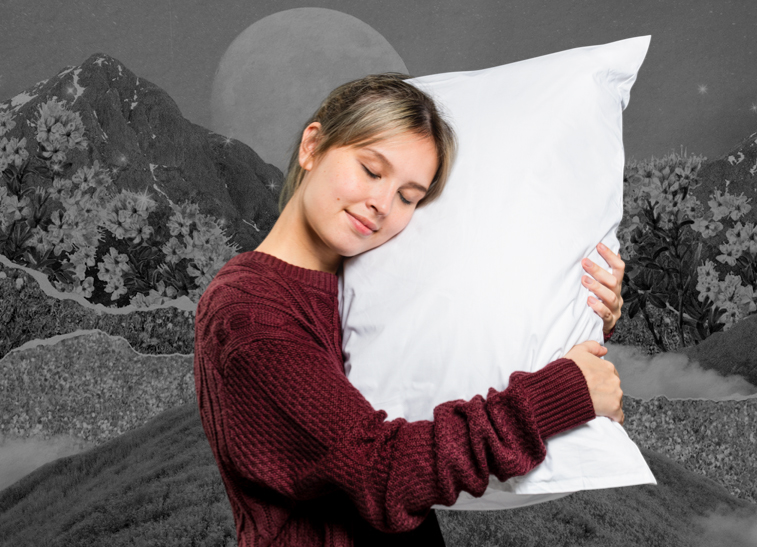
If you find yourself having to fluff your pillow up or flip it like a pancake throughout the night, it could be time for a pillow upgrade.
If you keep putting off shopping for a new pillow, I don’t blame you. Shopping for pillows can be frustrating and disheartening. I have purchased many expensive pillows that I haven’t been able to sleep on (e.g., too high, too low, or too firm). But I recently found the perfect pillow.
So, my advice is don’t give up. Keep searching for the perfect pillow.
Here are my pillow shopping tips:
• Go to a bed store, find a mattress that is similar to your own, and test out a range of different pillows on that mattress.
• Don’t be afraid to take a 15 minute power nap with the pillow in the shop!
• Some sales assistants will try to sell you really expensive pillows ($200AUD+) but the most expensive pillow may not be the best pillow (I ended up buying a $40 pillow).
I had a stack of Guardian Weekly news magazines that I wanted to get through. I thought, “Why not create a tiny habit of reading the news before bed?”
This was a terrible idea.
On the night’s I read the news before bed, I noticed that I would have nightmares.
So my advice to you is this: don’t read the news right before going to bed! Find a better spot in your daily routine to do it (after breakfast or lunch work works for me).
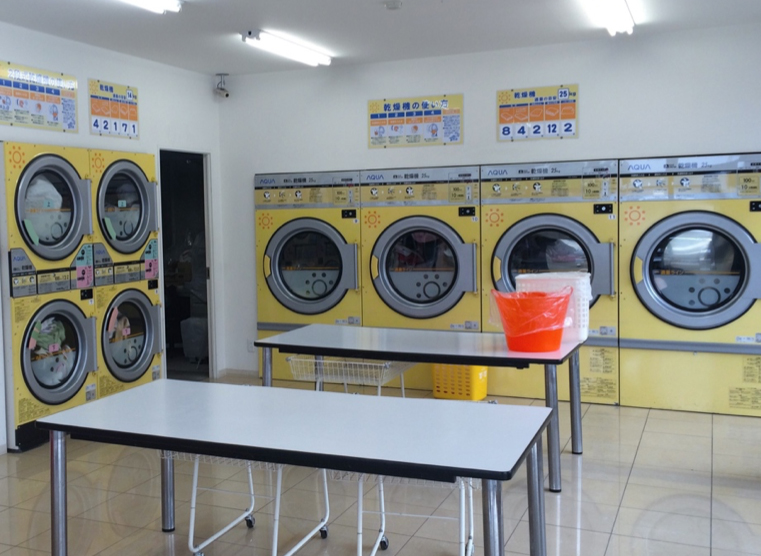
A survey by Sleep Junkie found that people who washed their sheets frequently (every 12.8 day on average) reported sleeping better than people who washed their sheets less frequently.
There’s something really nice about getting into a bed with clean sheets. Why not change your bed sheets and see how you sleep tonight?
If your mind is racing, grab a piece of paper and write out what you’re thinking. It doesn’t have to make sense or even look nice.
There is something mentally liberating about getting your thoughts out of your head and down on paper. When I write my thoughts down, I gain a little distance from them. Those thoughts are also less likely to keep looping through my head on repeat.
When you sleep, you want your room to be dark. The darker the better.
If you can see little green or red lights coming from devices, put tape over them. Block out curtains can work really well, too. But if you’re not in a position to change your curtains, I recommend investing in a good eye mask to block out the light.
I have experimented with lots of sleep masks over the years, but my favourite is a sleep mask I was gifted from Baxter Blue (you can check it out here). This eye mask is a little pricey but it’s super comfortable as it doesn’t apply any pressure on your eyes. Most importantly, it does a great job of blocking out the light.
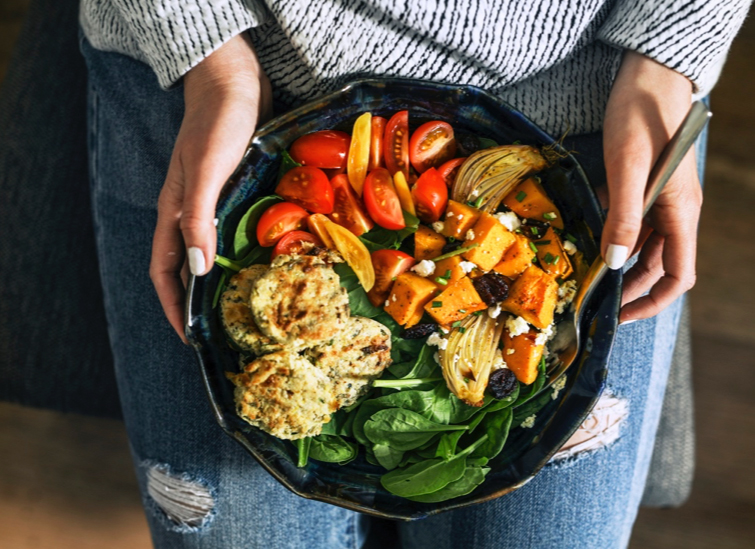
Studies show eating a fibre rich diet can lead to better sleep.
Where do you get fibre from?
From plant foods (i.e., beans, vegetables, fruits, and wholegrains).
There is no fibre in meat, eggs, dairy, and junk food.
Add an extra serve of vegetables to each of your meals (including breakfast). If you’re not a fan of vegetables, find ways to hide them in your meals. For example, whenever I add a handful of spinach or kale to a smoothie, I can’t even tell it’s in there!
There are many different things you can do to improve your sleep each night. The key is to commit to making sleep a top priority. Commit to trying a few of these strategies.
Getting healthy sleep is one of the simplest ways you can improve the way you feel, think, and learn. Let’s face it, everything feels easier after a good night’s sleep.
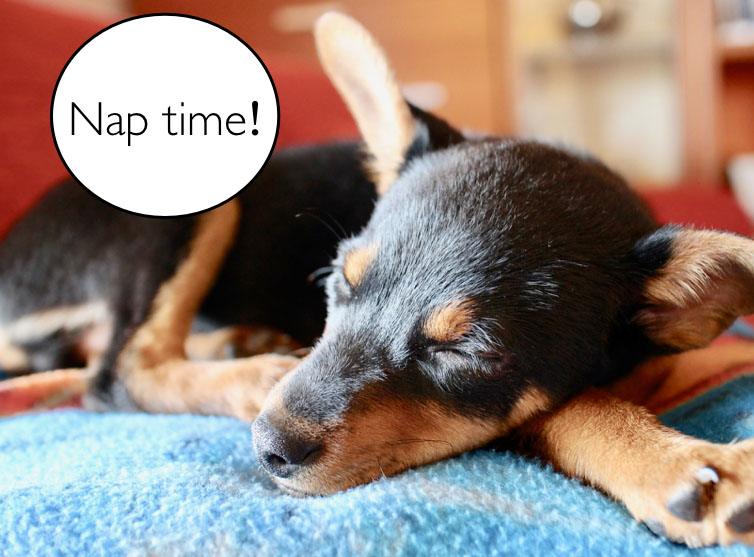
Do you want to get more done in the day, feel better and mentally sharper? Then consider taking a nap.
Winston Churchill was a huge fan of napping. He viewed his naps as time well spent and critical to performing his job well. He said this:
“Don’t think you’ll be doing less work because you sleep during the day. You will be able to accomplish more. You get two days in one . . . well, at least one and a half.”
Churchill believed naps made him more productive. Indeed, science shows this to be true: naps are great for our cognition. Studies have found napping helps to decrease stress and fatigue, lift our mood, increase alertness and performance.
I like to think of naps as being like a warm bath for the brain. They refresh and re-energise you.
Create your own nap pod
This is why when I was working on my PhD I created a nap pod in my office. It was tucked away under my desk and consisted of the following items:
• a camping mattress (one I could easily fold up and store away);
• a cushion;
• a little blanket;
• an eye mask; and
• an electronic timer (to limit my naps to 20-30 minutes).
I found that a short 20 minute nap around 2pm or 3pm left me feeling more alert, more energised and in a better mood. It gave me this energy boost, which I needed to get through the last few hours of the day. Without my nap, I would be like a zombie, staring blankly at the screen and vulnerable to consuming click-bait and trashy celebrity gossip.
Napping isn’t just for kids
Usually when we think of napping, we think of little kids being forced to take naps on mats on the floor. But napping is for everyone.
In recent years, workplaces such as The Huffington Post, Facebook and Google have installed nap pods for their staff to enjoy. These workplaces understand the huge benefits of taking a nap on the job.
My love of napping developed when I was 16 years old. I was on student exchange, living in the South of Italy in a small village called Spinazzola.
Come 1pm all the schools and shops would close in Spinazzola and we’d come home to have lunch and then nap. You knew the whole village was taking a collective nap when the streets were empty (see picture above)!
At first, I resisted napping. I thought, “This is stupid. I’ve got better things to do!”. But Mamma Rosa (my Italian host mother) insisted that I nap. So nap I did. And I’ve been a power napper ever since.
Perfecting your power naps
You can enhance your napping experience by dealing with a number of nap blockers from the outset. I outline some of the major barriers to taking a good quality nap below.
1.Block out the light
Light inhibits the production of melatonin (a hormone that makes you feel sleepy). This explains why it’s easier to fall asleep in the dark. If you have a lot of light in your room, I recommend using an eye mask to block out the light. You can see my review of different light blockers here.
2. Avoid caffeine and refined sugar

Ideally, avoid consuming caffeine and sugar before your nap. These substances will make you feel wired and hyper.
3. Deal with your negative conversations around napping
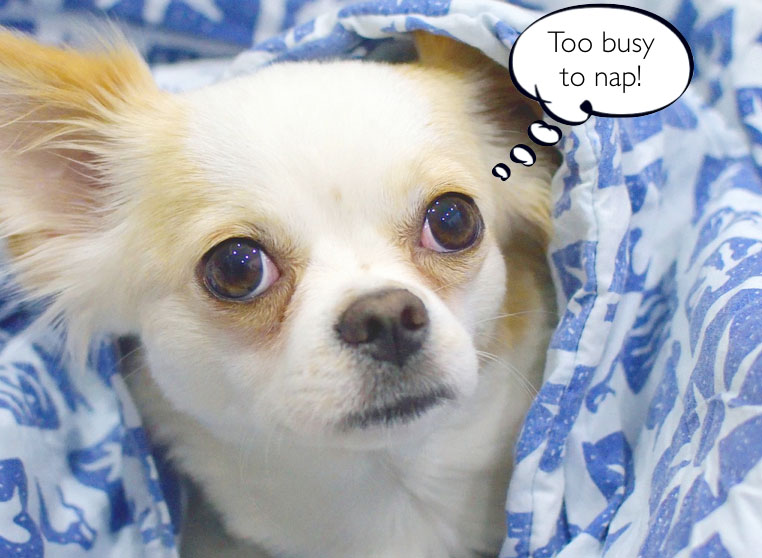
Our thoughts are often the biggest barrier to napping. If you find yourself thinking “But I’m too busy to nap!”, then that’s a sign that you need to stop what you’re doing and take a nap. The busier you are, the more you’ll benefit from a power snooze.
If you think napping is for lazy people, think again. Napping is something many creative and highly successful people do. It’s something the top violinists did in the famous Ericsson study on the role of deliberate practice in becoming an expert. The best violinists didn’t just practice for 4 hours a day but they also napped for longer periods than the other (less skilled) violinists.
4. Don’t worry about falling into a deep sleep
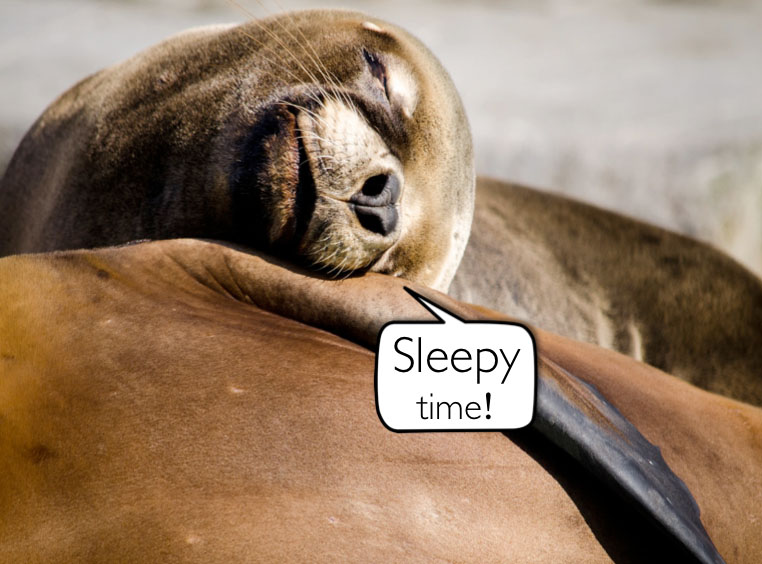
The most important thing is that you rest. Put your eye mask on, set a timer for 15-30 minutes and say to yourself ‘Sleepy time!’.
If you find yourself thinking about work, repeat to yourself again ‘Sleepy time!’. Now is the time to rest and recharge your brain.
To sum up
I encourage you to give yourself the gift of a nap each day. See what kind of difference this makes to your brain power and energy levels.
Do you enjoy taking a nap after school or work? How long do you typically nap for? What helps you to nap well? Let me know below!

If you want to be happier, healthier and mentally sharper, then the simplest thing you can do is to develop a good sleep habit.
Sleep is our body’s recovery mechanism. We need good sleep to think well, feel good and perform at our best. Research shows that students who don’t get enough sleep and/or sleep poorly are more likely to have a depressed mood and increased levels of anxiety.
But not only that, sleep is critical to the learning process. When you sleep, your brain is hard at work shifting information into your long-term memory, strengthening areas of importance and deleting irrelevant bits of information.
The bottom line is if you want to excel at school (and in life), then you need to make sleep a priority.
So why in the world is sleep usually the first thing students’ sacrifice to get more study done before exams?
Pulling an all-nighter before an exam (to cram more study in) is one of the worst things you can do.
As Dr Barbara Oakley states in her book A mind for numbers:
“Not getting enough sleep the night before a test [or exam] can negate any other preparation you’ve done.”
It’s like an athlete training for months for a big event but then going out clubbing the night before the event and waking up with a hangover the next morning. You know the athlete has just sabotaged their chances of success. The same thing applies with exams.
Lack of Sleep = Drunken Behaviour
Studies have found that a lack of sleep is as damaging to your cognition as being drunk.
So when you skimp on sleep the night before an exam, you’re effectively walking into the exam room as if you’ve had several beers or glasses of wine. You don’t need me to tell you that this is not a very good idea.
That terrible brain fog and seediness you feel after not getting a good night’s sleep is due to the build up of toxic waste in your brain. What a lot of students don’t realise is a good night’s sleep cleans out all the macro-molecular junk that has accumulated while you’ve been awake.
So we develop bad habits to help us stay awake and get through the day. You end up overriding your internal biology and putting unnecessary strain on your body. Let me explain …
The Stimulant-Sedative Loop
You’ve stayed up until the early hours of the morning studying. You wake up and you’re feeling pretty average. The thing about being tired is that you crave fatty and sugary snacks. You want caffeine to perk you up. So you have these things (e.g. chocolate and energy drinks) to get through the day, but then your brain is too hyped to sleep. So what do you do?
You take a sleeping pill. But the problem with sleeping pills is they don’t increase the amount of decent sleep you get.
So when you wake up, you feel really groggy (Ugh). You need a coffee or energy drink to get going. But that soon wears off and you need another energy drink. And then a pill to wind down …
You end up in this vicious cycle of overriding your internal biology. This is what sleep scientists refer to as the Stimulant-Sedative Loop.
Case Example: The King of Rock and Roll, Elvis Presley
A classic example of someone who was stuck in a Stimulant-Sedative Loop was the king, Elvis Presley.
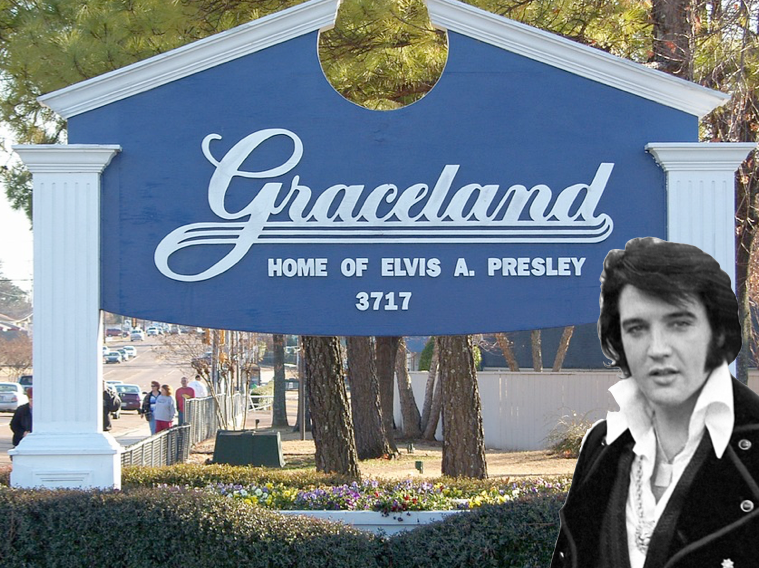
Elvis had a lot of trouble sleeping. He was constantly worried that he wouldn’t get enough sleep to do a good show, so he’d take sleeping pills.
He was also addicted to amphetamines. These were legally available as an appetite suppressant, so for a time they helped keep Elvis’s weight down but they also kept him wide awake.
So when Elvis was on tour, here is what he’d consume each day:
He’d wake up in the afternoon and take ten medications to make him feel awake.
An hour before a show he’d take another seven medications.
Immediately before the show he’d have a shot of caffeine or a caffeine placebo.
After the show he’d take another five drugs and bedtime sedatives.
Elvis felt tired a lot of the time, so he craved fatty and sugary foods. One of Elvis’s favourite meals was a peanut butter, bacon and banana sandwich. Then there was the Fool’s Gold Loaf: a hollowed out loaf of sourdough bread, stuffed with an entire jar of peanut butter, an entire jar of grape jam and half a kilogram of bacon. And then it was deep-fried. It’s hard to imagine someone could each something like this. But Elvis did. Go Google it. You’ll be shocked.
In last few years of his life, Elvis was consuming between 10,000-12,000 calories a day.
He died at the age of 42.
Now I realise Elvis is an extreme example. But this is what happens when you don’t take care of yourself. You get sick. All your systems get thrown out of whack. So you need to cultivate better sleep hygiene than Elvis. Otherwise, you could get sick too.
Developing an Effective Sleep Ritual
Many of us expect to be able go from full speed to deep sleep in under a minute. But it doesn’t work like this.
You need to spend 20–30 minutes winding down before you go to bed.
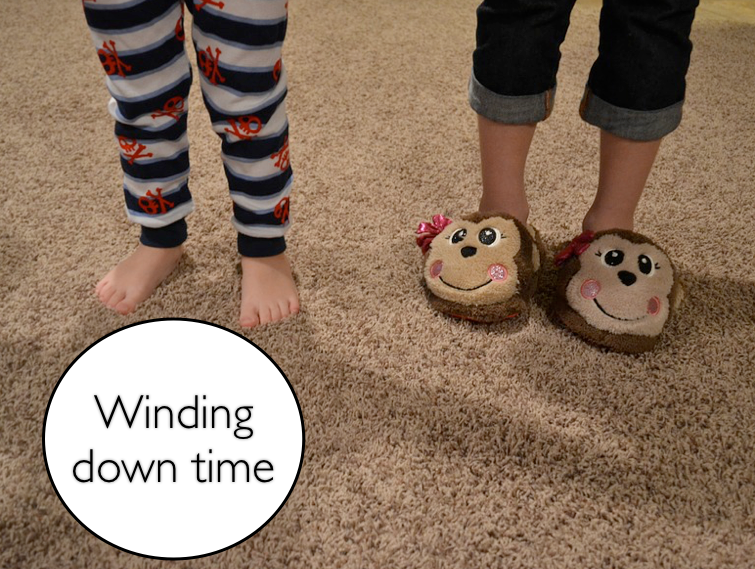
You can do a number of different activities in your wind down time, but there are two key things you want to do:
1) Engage in activities that calm your mind down.
2) Set up structures to help you get to bed at a reasonable hour.
Calming your mind down
Here are some different ways you can relax your mind before hitting the sack:
1) Dim the lights
2) Write and get your thoughts down on paper
3) Read a book (but nothing too mentally stimulating)
4) Switch off all electronic devices and remove them from your room
5) Have a bath
6) Meditate
7) Do some gentle yoga stretches
8) Listen to soothing music
9) Avoid refined sugar and caffeine
10) Have a warm cup of milk or herbal tea
If you don’t want to part with screens, change the blue light being emitted from the device to an orange light with an app like f.lux. The orange light won’t mess with your melatonin (a hormone that makes you sleepy).
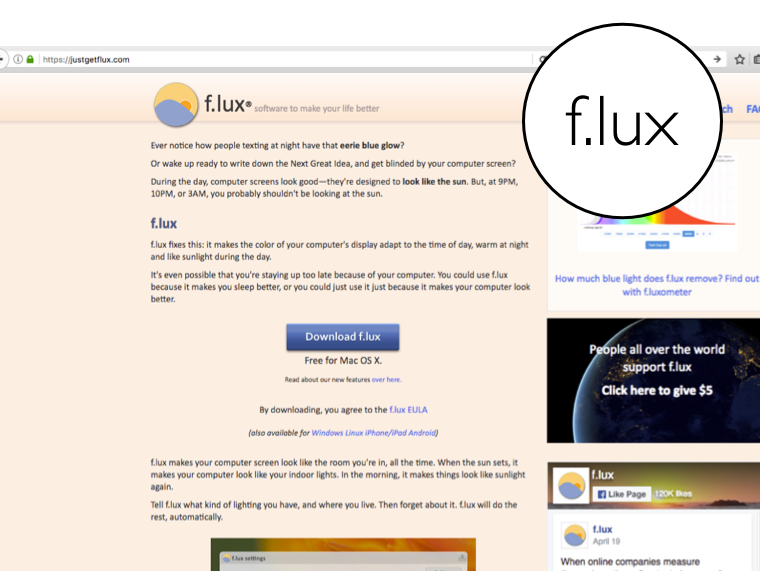
But just keep in mind that if you’re going to continue using your technological devices, it’s best to log off social media.
It’s not just the light that matters when it comes to your technological devices. It’s the fact that using these devices often displaces sleep and the media content consumed can be highly emotionally/mentally/physiologically arousing, thereby making it harder for you to fall asleep.
As Dr Lynette Vernon states in her PhD thesis titled, The role of problematic technology use for adolescents: The importance of sleep for wellbeing:
“For adolescents highly invested in social media, if negative feedback is received at night, prior to bedtime or after lights out then it is highly likely stimulating negative content elucidates an emotional arousal (for example, envy or anxiety) which impedes sleep onset.”
In other words, content may appear in your feed that makes you feel lousy. For example, pictures of friends having fun on exotic holidays may trigger feelings of jealousy. Now, if you’re at home alone (with no plans to go anywhere exciting anytime soon) then you may start to think your life is pretty average. Because you don’t feel great, it’s going to be harder for you to fall asleep and have a good night’s rest.
So it’s best to be screen free in your wind down time. Don’t risk feeling ‘Insta-jealousy’ or ‘Insta-bad’.
Getting to bed at a reasonable hour
I need a cue to remind me when it’s time to start winding down for bed. There are two cues that work well for me:
1) My alarm going off, and
2) Being booted off the Internet by an Internet blocker app.
In the evening, when I’m not feeling particularly sharp, it’s just too easy to faff around on the Internet until late at night. It will be 10pm and I’ll say to myself, “I’ll just write one more email” or “I’ll just check Facebook for one minute”. But one-minute is never actually just one minute. One minute is nearly always an hour or more.
If you use a Chrome Internet browser, you can get a Chrome extension called Stay Focused. This will lock you out of the Internet at set periods of time. For myself, I get booted off at 9pm. I can’t access any more sites until 6am in the morning.
To Sum Up
Sleep is critical to living a good life. It’s also critical to learning information effectively. With this in mind, it’s time to start prioritising good sleep to be the best version of you.
What could you do to get a better night sleep? Do you have any tips or suggestions on how to sleep better? Feel free to post your ideas below.
Dr Jane Genovese delivers interactive sessions on learning to learn, combating procrastination, exam preparation, how to focus in the age of distraction, habit formation and much, much more!
Get FREE study and life strategies by signing up to our newsletter:
© 2024 Learning Fundamentals